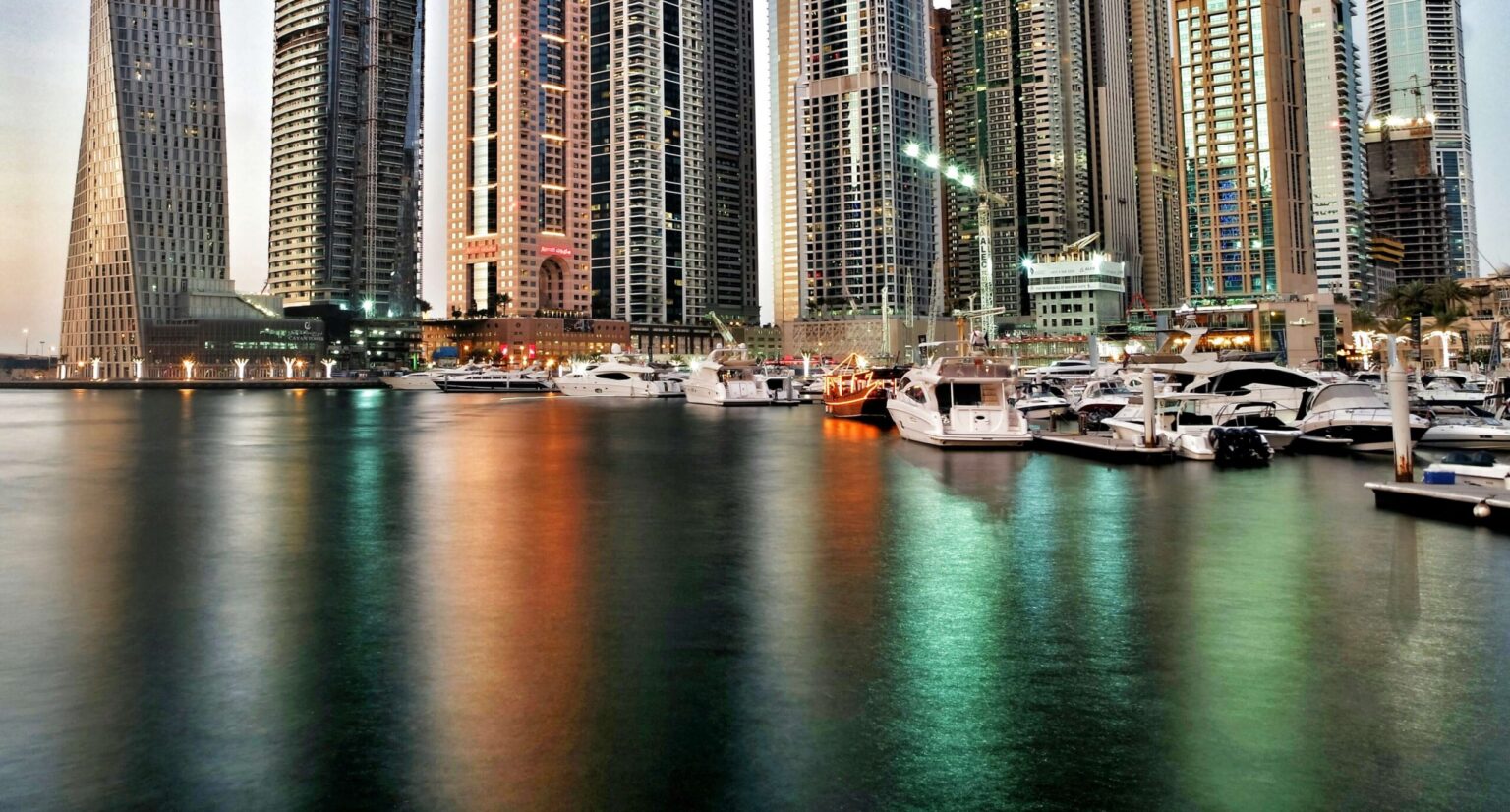A Free Trade Zone (FTZ), commonly known as a Free Zone, is a geographical area that is a designated customs-free zone. No taxes or duties are levied within the given area – goods, services and commodities can be imported, exported, handled and manufactured without adhering to the usual customs regulations.
It’s unclear precisely how many FTZs there are in total, but they exist all over the world, from North America and Europe to Asia and the Middle East. These zones are strategically positioned and designed to attract foreign investment using their attractive features.
Now, the United Arab Emirates (Dubai specifically) is particularly well-known and renowned for its FTZs. As of 2024, there are about 45 FTZs in the United Arab Emirates and 26 of those FTZs are located in Dubai.
Indeed, FTZs have become a key component of the UAE’s economic strategy to attract international business and foreign investment. Different zones cater specifically to different industries, from technology and finance to media and manufacturing.
How Do Free Trade Zones Work in the UAE?
The idea behind establishing FTZs in the UAE is to create as much incentive as possible for foreign businesses to operate within the country. It transforms these areas into business-friendly environments by offering companies relaxed labour laws, tax breaks and regulatory processes that are far easier to adhere to. Ultimately, these areas tend to see high levels of foreign direct investment (FDI).
Now, Free Zones in Dubai and the UAE offer businesses a unique set of rules and benefits that are independent of the country’s standard commercial regulations. For all intents and purposes, companies that are set up within these zones are treated as offshore entities from a legal perspective, meaning that they can import and export goods and services without having to adhere to customs duties.
Here’s how FTZs work in Dubai and the UAE:
- A Simplified Business Setup: Registration, licensing and operational processes are streamlined in FTZs, making it significantly easier to set up a company.
- Total Foreign Ownership: Businesses operating in Free Zones can be totally owned by foreigners. Unlike in other parts of the UAE, FTZs allow for 100% ownership by foreign investors, so owners won’t require a local partner or sponsor.
- Customs and Tax Incentives: For some, it’s the tax incentives that are the biggest motivation behind establishing a startup or a business in a FTZ. These benefits include corporate tax exemption, no having to pay personal income tax, no import/export duty, full profit preparation and more.
- Sector-Specific Free Zones: In the UAE, different zones are tailored to the needs of specific industries, including things like tech, finance, media, logistics and more. These zones tend to have infrastructure that is able to cater to the needs of the sector in question.
- Relaxed Labour Laws: Labour regulations are far more relaxed in FTZs which makes it significantly easier to hire expatriates.
- Geographical Advantage of UAE-Based FTZs: The UAE is a prime location for business due to its centrality, and the relaxed regulations of the FTZs make it even better than other parts of the country.
The idea behind creating FTZs in the UAE is to create as much incentive as possible for entrepreneurs and businesses more broadly to bring capital into the country, and for all intents and purposes, it’s a pretty effective strategy.
Main Advantages of Free Trade Zones
The whole point of setting up a company in a FTZ is that it makes business easier and potentially more profitable by means of relaxed regulations and certain financial benefits.
Some of the most notable advantages of operating within a FTZ include:
- Tax Exemptions
- No Import/Export Duties
- 100% Foreign Ownership of Business
- Simple Business Setup
- Full Repatriation of Profits
- Strategic Location
- Infrastructure is Industry Specific
- Employment/Labour Regulations Are Flexible
- Customs Is Efficient
The UAE isn’t the only country in the world that uses FTZs as a specific economic strategy to attract foreign business and investment, but it certainly has been successful in the endeavour.
FTZs around the world are managed differently depending on the country and region in which they are located. With regard to the UAE, each Free Zone is independently regulated and managed by its own governing body, a Free Zone Authority (FZA). Although they’re independent, they still have to operate under broader national laws, but at the same time, they’re empowered to create specific rules that are tailored to the zone.
The purpose of Free Zones is to create a space in which many ordinary rules, especially those that are restrictive, don’t apply while still adhering to more general regulations and standards.




